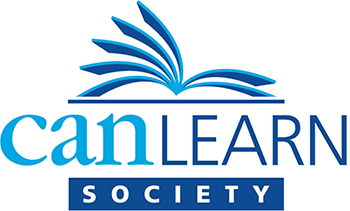By Larissa Predy, M.A., R. Psychologist
I’ve heard many people proclaim that they cannot or should not change who they are, or that as their beliefs and values grow and shift over time, that there is something inherently wrong with this. I do not agree. Our society has us convinced that we are to know “what we want to be when we grow up” and who we are from a very young age. But it is scientifically recognized that as humans we are ever changing, dynamic organisms. Our development is continuous and our brains are plastic (meaning changing). Change and growth are natural parts of life, and only once we accept this can we accept the change in ourselves and others.
Let us think for a moment. Think about your family members and the people by whom you were raised. Given that we share the blood and DNA of some of these people, we are shaped by who they are; not only by genetics, but by their own history, by how they behave, and by how they demonstrate their emotionality, their resilience, their confidence and self-worth, and their values and visions of the world. This is not to say that we become exactly like our parents or that we always necessarily agree with their perspectives, values, and beliefs, but it is to say that these parts of who they are influence who we become and how we view the world. It could be thought of as the lens through which we grow up seeing the world. Once we recognize this point, it can be extremely valuable for us as children (we are all children of someone) AND for us as parents! We call this kind of recognition and acknowledgement: metacognition – it means, thinking about thinking. When we are metacognitive, we are considering our thoughts, their foundations, their influences, their process, and their implications. If we do this when considering the people in our lives, we can use this knowledge to understand and better respond to the world around us. We can use it to have empathy and to forgive (and learn from) the actions of others and ourselves.
As you examine this family tree (to the right), consider how the character of a parent may be reflected in the child.
Now, consider how the child may be completely different from the parent but have traits of one or both parents, or perhaps of a more distant relative.
In this example it is easy to understand Homer, and to forgive Bart, or Patty and Selma for their character flaws. But you also notice the innocence and patience of Marge as she is a balance of her parents (as well as her own individual). We can go on to make all kinds of claims about the kids and relations in this family, and perhaps excuse a few of Bart’s behaviours… and I encourage you to play around with it in your mind. The key here is to learn to understand your own life’s dynamics through this same process.
What are your mother or father like when they argue? Are their mannerisms and reflections in part due to their own upbringing? Were your grandparents calm and easy going or strict and authoritative? Do you find yourself reacting the same way? Or are you torn between two attitudes and mentalities? Are these opposing views due to the other people who influence you and have taught you something along the way, be it intentionally or unintentionally? People other than your immediate family do influence your view of the world, but most often our immediate reactions (our instinctive nature) are linked closely to our biological parents.
This is not a blog post about blame – this is a blog post about understanding and, ultimately, acceptance. I hope through contemplating these things, you can find some peace and compassion for yourself and your loved ones.
Larissa Predy, M.A., received her Masters of School Psychology from the University of British Columbia in Vancouver, BC. She has over 12 years of experience working with children, youth, and their families. Larissa has worked as a certified school psychologist in BC, a crisis clinician supporting families and youth in the community and education system, and as an emotional behaviour specialist. She is a solution-focused therapist and enjoys identifying and designing individualized intervention, instructional adaptations and modifications, and psychosocial accommodations. Utilizing a strengths-based approach, Larissa specializes in exceptional learning abilities (e.g., giftedness, learning disabilities, intellectual disabilities) and is passionate about helping families and school teams manage and cope with associated problem behaviours.

